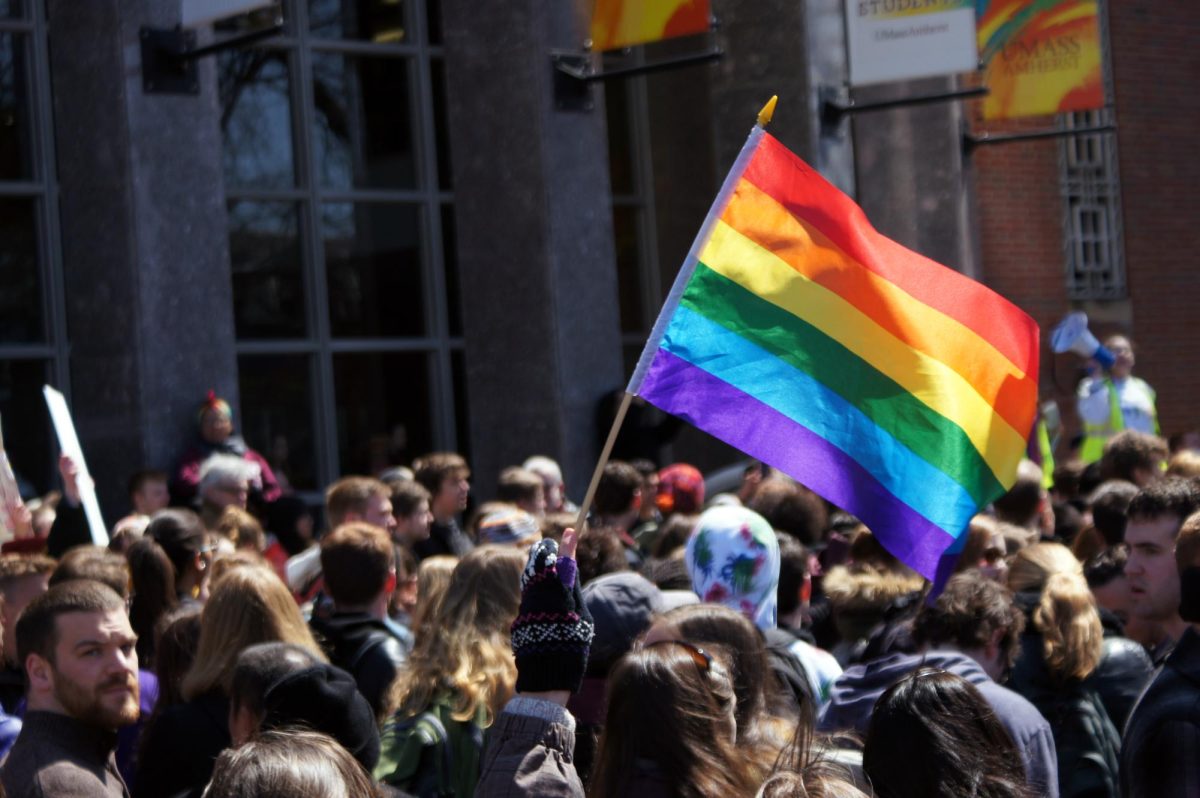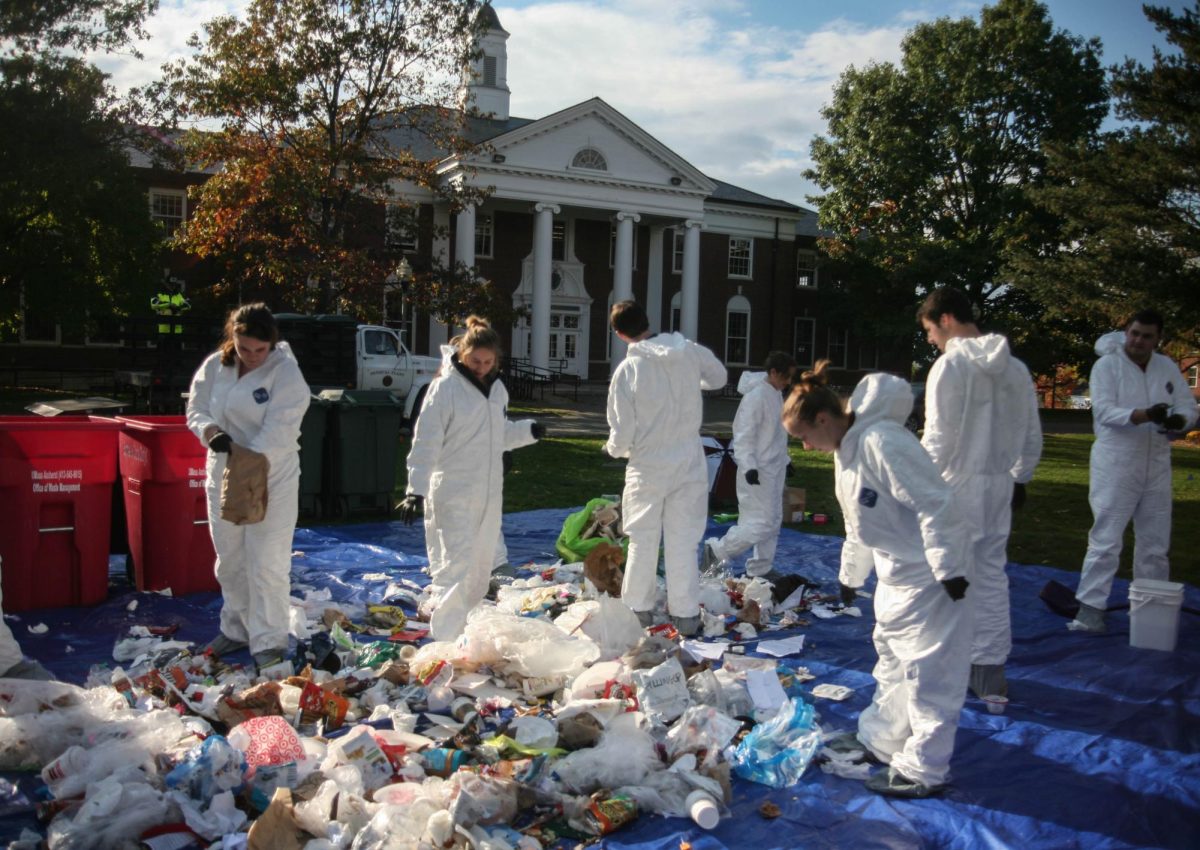Current United States politics has an obsession with business owners. Republican U.S. Rep. Eric Cantor posted on Twitter last month that Labor Day supposedly celebrates people who “built a business and earned their own success.”

This was a shocking disregard for the real meaning of Labor Day – it celebrates workers, not bosses – but it was also a perfect example of the prevailing political attitude today. The Democrats may not go so far as to lie about public holidays, but both parties seem to agree that corporate executives and shareholders are the engine of the economy, the “wealth creators” who shower their blessings upon us in the form of jobs and wages.
I dedicated my column two weeks ago to debunking the myth that the rich somehow earned their wealth through hard work or innovation. I ended that column by saying that the rich are getting a lot of wealth that rightfully belongs to others who worked for it. That statement contains an idea that should be common sense, which almost passes unnoticed … yet it is an idea rejected and opposed by the entire political establishment, Republicans and Democrats alike.
The idea is that people have to work in order to produce wealth. Human labor, including both physical and intellectual effort, is the source of wealth. Not all effort produces wealth, but all wealth is produced by effort. You definitely can’t create wealth by doing nothing. Inaction is not productive.
This may seem obvious, and the rich and powerful do occasionally pay lip service to it – for example, by saying that America was built through hard work, which is very true – but they are careful to avoid going further and drawing any serious conclusions. Such conclusions would be very inconvenient for them, because they would have to admit they are not the real wealth creators.
If human labor is the source of wealth, if we can agree that the only way to get something useful is to have someone work for it, then we must conclude that the real wealth creators are the working class (including everyone who works for a wage). And if inaction is not productive, then every time someone gets money simply by waiting for it, without taking any action to produce something, then they are getting wealth that rightfully belongs to someone else – someone who worked for it.
Suppose, for example, that a number of workers are making pastries in a small pastry shop on rented land. They get money for their pastries, and they pay some part of that to the landowner as rent. What did the landowner do to earn the rent money? Nothing. The rent money represents wealth that was produced by the workers, and it rightfully belongs to them. The landowner may have worked in the past to earn the money to purchase the land, but he is not working in the present. He deserves to keep the money he earned in the past, but he does not deserve to get extra money on top of that in the form of rent payments.
If you worked for a million dollars in the past, you deserve precisely $1 million – no more and no less. If you are getting additional wealth without doing additional work, then you are taking away the products of someone else’s labor.
Now suppose those workers have a boss, who owns a large chain of pastry shops. They work for him, producing and selling pastries. At the end of the month, all the earnings from the shop go to the boss, and he pays the workers their wages. Naturally, the boss makes a profit from this arrangement. That’s the purpose of being a business owner, after all. He looks at those earnings he receives at the end of the month, and divides them in three piles. The first pile is used to pay the material costs of running the business (supplies, maintenance, utility bills and so on). The second pile is used to pay workers their wages. The third pile is profit, and the boss keeps that for himself.
But who produced all that wealth that goes into the three piles?
The workers did. They were the ones who made all the pastries, and they were the ones who sold them. Yet they don’t get to decide what happens with the wealth they produced, and they only get to keep a small part of it (the second pile). Of course, they couldn’t have kept the first pile anyway, because it was needed to cover expenses.
But what about the third pile – what about profit? That wealth was produced by the workers, yet the boss kept it for himself.
So, just like the landowner, the capitalist boss is getting something for nothing. For the landowner it was called rent, for the capitalist boss it is called profit. But it’s the same concept. It is unearned money.
The landowner can get it because he owns the land, and the capitalist boss can get it because he owns the business. In both cases, these people may have worked in the past, but they keep getting money despite not working any more in the present (at least not in the pastry shop where their money comes from).
Of course, I’m presenting a very simplified picture here. The reality of business – even a chain of pastry shops – is much more complex. Still, the basic point remains the same. Wealth is produced by hard work, but capitalism robs from those who work and enriches those who don’t.
What is to be done about it? That is a question for another column. For now, I think we should start by reminding our out-of-touch politicians who the real wealth creators are. And the next time Democrats and Republicans argue about who “built that,” we should give them the real answer: The workers built that.
Mike Tudoreanu is a Collegian contributor. He can be reached at [email protected]













InstantMoneyNetwork • Nov 22, 2012 at 3:21 am
Great article. But its actually easier to attain wealth then most people think. Fortune 500 companies are now paying people to advertise for them online. Paying 20$ to 120$ per FREE referral. Money is sent through Paypal or Direct deposit.
Jamie • Nov 10, 2012 at 3:46 am
I must confess I am astounded by Billz’s cogent argument and astute debating skills. I would ask him to write a second sentence, but his first one is so perfect that it needs no follow-up. We are not worthy.
Billz • Oct 26, 2012 at 5:37 pm
Mike, you’re a moron.
Mike Tudoreanu • Oct 16, 2012 at 8:18 pm
ktabz and Daniel Frost: You bring up the old idea that perhaps business owners deserve their profits, either because they do some work or because they take risks. I expected that kind of response, and it was precisely for this reason that I made sure to write a column refuting the notion that the rich deserve their wealth. That column was published two weeks ago:
*
https://dailycollegian.com/2012/09/28/they-say-they-earned-it/
*
In that column, I explained that the rich could not possibly be getting their money from their own hard work, because the huge wealth gap between them and the rest of us is simply too big to be explained by a difference in effort. The rich get as much money as entire cities of ordinary working people put together. No one can work THAT much harder than a normal person.
*
Also, in that column I responded to the idea that business owners earn their profits by taking risks. I said:
*
“Well, the rich do risk their money on new businesses and projects. This is the argument of last resort: That the rich are braver than us, because they take risks we don’t. But the main reason why ordinary people don’t risk millions of dollars on new projects is because they don’t have millions of dollars in the first place. We are not unwilling to take those kinds of risks; we are unable. The rich take more risks with their money not because they’re braver, but simply because they can afford it. To risk money, you must first have money. And besides, is it really that brave to risk a million dollars when you have hundreds of millions more? It would be like me risking $10. To say that people deserve to be rewarded for taking risks with their money is basically saying they deserve more money because they already have money.”
*
I would also add, in response to ktabz, that the workers at the pastry shop take on just as much risk as the business owner. If they make crappy pastries, they lose their jobs.
Brian D. • Oct 16, 2012 at 6:02 pm
Juggernaut, you’re making an argument that the article has already answered in advance. Where does the capital come from to start the business? Well, usually, the start-up capital was acquired by the business owner from a previous business. This is how capitalism works: the business owner gets money that rightfully belongs to his workers, then uses it as capital to start a new business and get even MORE money from a larger number of workers, then uses *that* money as capital to start a third business… and so on. It’s like a snowball rolling down the hill.
.
But, you might ask, where did the money come from to start up this guy’s FIRST ever business? Most often it’s either inherited or borrowed. But sometimes it is money that was earned through honest work. This possibility was already acknowledged in the article:
.
“The landowner [or business owner] may have worked in the past to earn the money to purchase the land [or business], but he is not working in the present. He deserves to keep the money he earned in the past, but he does not deserve to get extra money on top of that in the form of rent payments [or profits].”
.
See, that’s why I said your argument was already answered in advance. Yes, it’s possible that the business owner worked to earn the money he uses as start-up capital. But then he deserves precisely THAT amount of money, NOT that amount *plus profits.* If you worked and earned $10,000, then you deserve $10,000… You do NOT deserve $10,000 *plus* profits from a business you buy with that money.
ktabz • Oct 15, 2012 at 10:18 pm
without the land the workers cannot make pastries, without investment in pastry making equipment and raw materials, workers cannot make pastries. if the workers make crappy pastries that no one buys, the investor loses his investment. this is called risk. if you take a risk there should be the potential for reward. if there’s no potential for reward, there is no investment, no pastries, no workers and no rent.
it’s not rocket science. if you take away the reward, you take the whole system away.
The Juggernaut • Oct 15, 2012 at 2:31 am
So who starts the business? Where does the capital come from, and who is willing to risk it all if they can make the same amount working for someone else?
Jason Brooks • Oct 14, 2012 at 10:00 pm
If we had 40 of those businesses that employ 25 people, we could have 1000 families made happy as well.
Daniel Frost • Oct 14, 2012 at 6:12 pm
You know whats the difference between a business that employs 25 people and a business that employs a 1000 people.
975 happier families.
.
I know this isn’t a perfectly sound statement, but it makes you think.
Daniel Frost • Oct 14, 2012 at 6:00 pm
Good Observation of social rhetoric, yet I think there a problem with your idea that workers should be undoubtedly be rewarded the status as “wealth creators.”
Your idea is compelling, but it has been made many times before by serious critics of capitalist ideology throughout recent history. The reason why Republicans and Democrats use the term “wealth creators” for businesses and businessmen is because businesses and businessmen manage net profits (the third pile) so that they may be reinvested into that business as to grow their business, make more money, and higher more people. This action creates “wealth.”
Wealth = Businesses being WORTH more money so that they can higher more people.
Your argument makes two BIG assumptions.
-Businessmen and owners of business don’t work. (Therefore you assume managing people and planning a companies future is not a form of work.)
-Exchanging labor for a pay check is inherently not a fare exchange. (Therefore businesses giving people jobs and a salary so that people may invest in themselves is not worth the worker’s time and labor.)
Brian D. • Oct 12, 2012 at 3:27 am
Wow, this is really throwing down the gauntlet to mainstream politics (or maybe more like throwing that gauntlet right in its face). Well done! You’re right, it IS common sense that wealth is produced by hard work. Even Republicans admit that. But I’ve never seen them or the Democrats be willing to follow this idea to its logical conclusion. If wealth comes from work, then working people create all the wealth of society. But they only keep a small part of it, and the rest goes to the rich as profit, rent and interest (you should have mentioned interest too, by the way).
‘
This is a seriously hard-hitting criticism of capitalism, but the reason I *really* love it is because it takes a typical conservative accusation and throws it right back at them: “you are lazy and living off other people’s work.” Yes, the rich are living off our work, and it’s time we realized that.